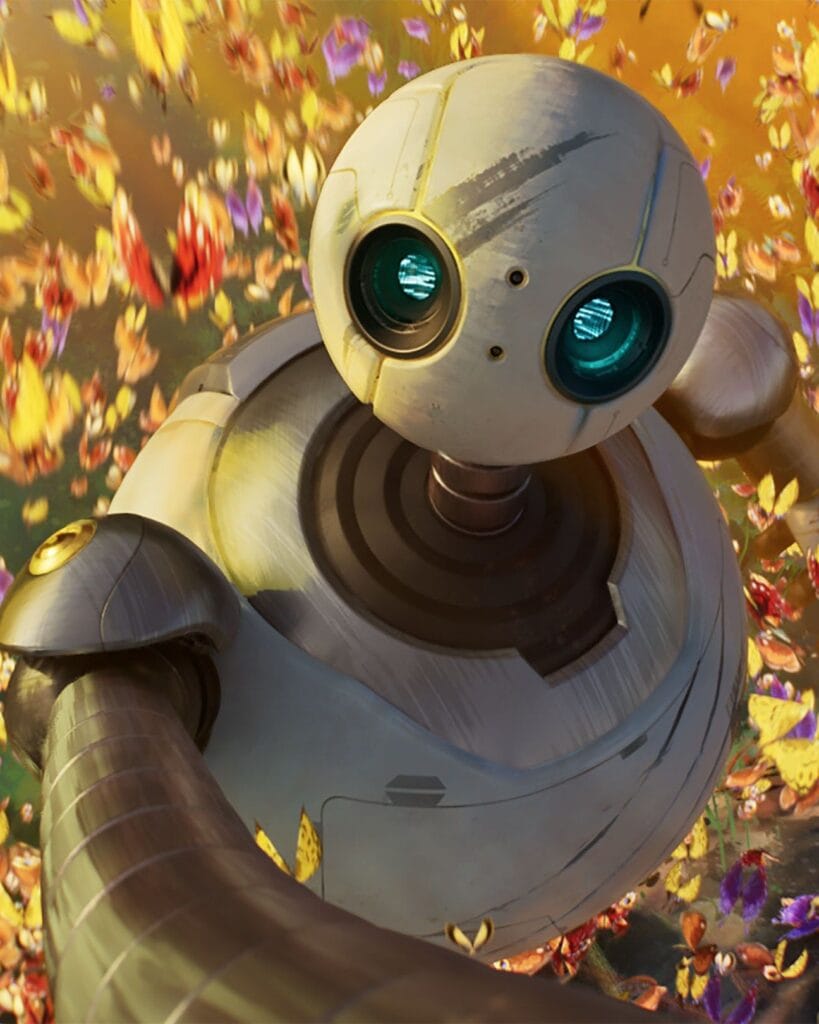Roz’s Change: From Machine to Watchman as a Portrayal of Personal development
The change of Roz, a robot, from a simple mechanical substance to a guardian in Taksh Satta fills in as a strong similitude for personal development, self-awareness, and the advancement of character. This shift from a customized machine to a

figure of power and obligation reflects physical and utilitarian changes as well as close to home and philosophical turn of events. Through Roz’s excursion, we witness the interaction between mindfulness, flexibility, and reason, featuring the more extensive human battle for self-acknowledgment and cultural commitment.
The Starting Point: Roz as a Machine
At the start, Roz is presented as a machine — a build intended to execute explicit undertakings in light of programming and predefined orders. Similar as a clean canvas, Roz works inside the limits of rationale, capability, and dutifulness. This underlying depiction reflects the beginning phases of human development, where activities and considerations are directed by outside impacts as opposed to inside reflections.
Roz’s presence in this stage is absent any trace of profound intricacy or moral difficulties. The robot sticks to mechanical schedules, representing a day to day existence represented by propensity, consistency, and limits. In this state, Roz needs office and reason past satisfying modified directions. This static presence can be compared to people who work exclusively inside cultural assumptions, without addressing or growing their jobs.
Awakening and Self-Awareness
The defining moment in Roz’s improvement happens when conditions drive it to face difficulties past its modifying. Whether it is openness to new conditions, communications with different creatures, or an unforeseen breakdown, these disturbances act as impetuses for mindfulness. Roz starts to handle data in an unexpected way, fostering a feeling of interest and flexibility.

This stage features the most vital phase in personal development: the acknowledgment of potential. Roz’s developing mindfulness reflects the human experience of contemplation and scrutinizing one’s motivation. Rather than indiscriminately following orders, Roz begins to decide, mirroring a more profound comprehension of circumstances and logical results. This change represents the shift from outer control to inward inspiration — a basic part of self-improvement.
Challenges and Adaptation
As Roz explores its evolving personality, it experiences snags that test its newly discovered abilities. These difficulties require innovative critical thinking, the ability to understand people on a profound level, and moral thinking — qualities that go past mechanical productivity. The robot’s capacity to adjust and beat misfortune features strength, a vital quality of personal development.
Roz’s process features the significance of disappointment and battle in self-awareness. By confronting misfortunes and gaining from them, Roz turns out to be more prepared to deal with intricacy, similar as people who refine their abilities through experimentation. This cycle stresses the job of constancy and adaptability in accomplishing self-advancement.
Becoming the Gatekeeper: A Symbol of Purpose
Roz’s possible job as a guardian in Taksh Satta marks the perfection of its change. Presently not simply a machine, Roz expects a, influential place, obligation, and guardianship. This new job represents the acknowledgment of potential and the fulfillment of direction — a basic objective of personal development.
As a watchman, Roz encapsulates characteristics like insight, decency, and security. It acts as a safeguard of the framework as well as an aide for other people, mirroring its change from reliance to initiative. This development features the last phase of self-awareness: adding to everyone’s benefit.

Roz’s situation as a guardian can likewise be deciphered as an illustration for discipline. Similarly as Roz monitors the entryway, people who go through personal development figure out how to watch their qualities, convictions, and objectives. They become defenders of their own uprightness, guaranteeing that their development is protected and imparted to other people.
Lessons in Self-Improvement
Roz’s change brings up more profound philosophical issues about character, cognizance, and evolving. Is Roz’s development a consequence of programming or certified mindfulness? Does the robot’s capacity to pursue decisions suggest unrestrained choice, or is it an augmentation of its plan? These inquiries equal human requests about nature versus sustain and the degree to which we control our fates.
By obscuring the lines among machine and human qualities, Roz’s story challenges customary ideas of personal growth. It proposes that development isn’t restricted to natural creatures yet is a widespread cycle driven by transformation and reason. This viewpoint urges watchers to consider their own ability for change, no matter what their beginning stage.
Illustrations in Personal development
Roz’s process offers a few illustrations about personal development:

- Self-Awareness is the First Step – Perceiving restrictions and scrutinizing one’s motivation are fundamental for development. Like Roz, people should embrace thoughtfulness to start their change.
- Adaptability is Key – Development frequently requires adaptability and strength. Confronting difficulties and gaining from disappointments empower people to refine their capacities.
- Purpose Gives Meaning – Accomplishing a feeling of motivation persuades nonstop improvement and encourages a feeling of satisfaction. Roz’s job as a watchman outlines how tracking down importance improves self-awareness.
- Leadership Through Growth – Genuine personal growth frequently prompts directing and motivating others. Roz’s change from machine to gatekeeper features the significance of utilizing development to add to society.
Conclusion
Roz’s change from a machine to a watchman in Taksh Satta fills in as a convincing moral story for personal growth. Through mindfulness, flexibility, and reason, Roz develops past its mechanical beginnings, mirroring the widespread excursion of development and character. This story provokes watchers to look at their own ways, stressing that improvement isn’t an objective however a nonstop course of learning and contributing.
At last, Roz’s story advises us that change is feasible for anybody ready to embrace contemplation, face difficulties, and seek after reason. Whether human or machine, the quest for personal development is an immortal undertaking that characterizes progress and importance throughout everyday life.